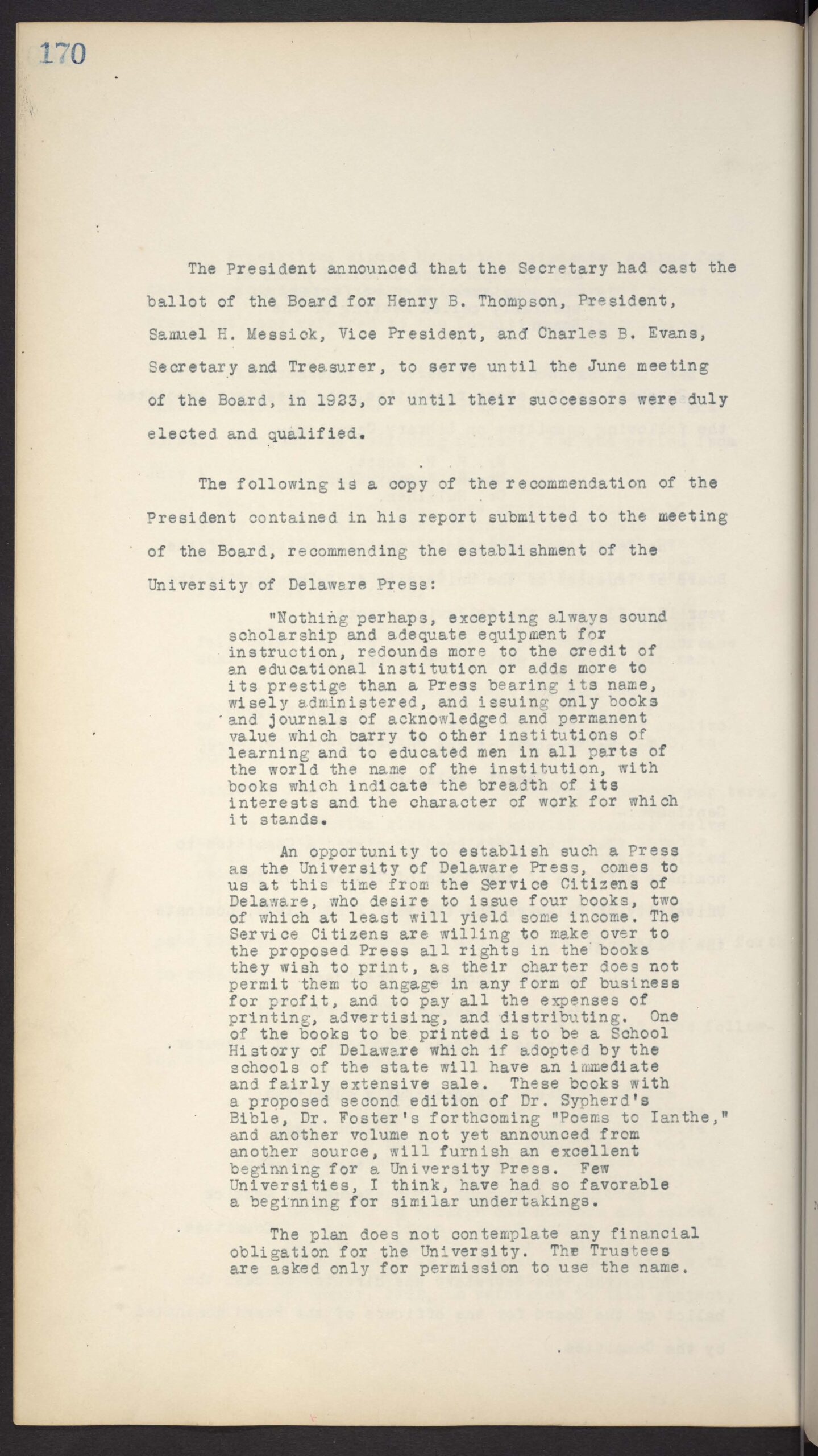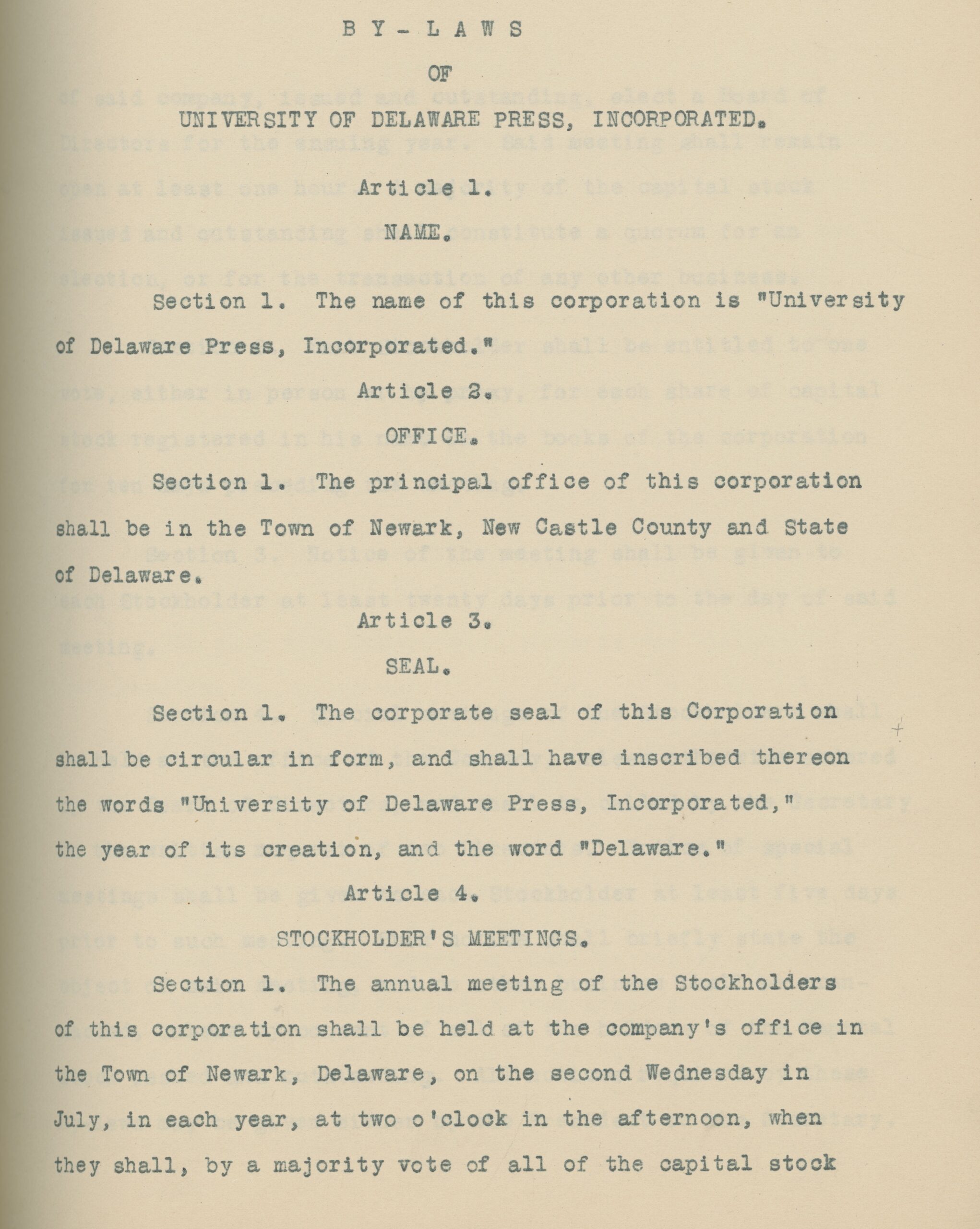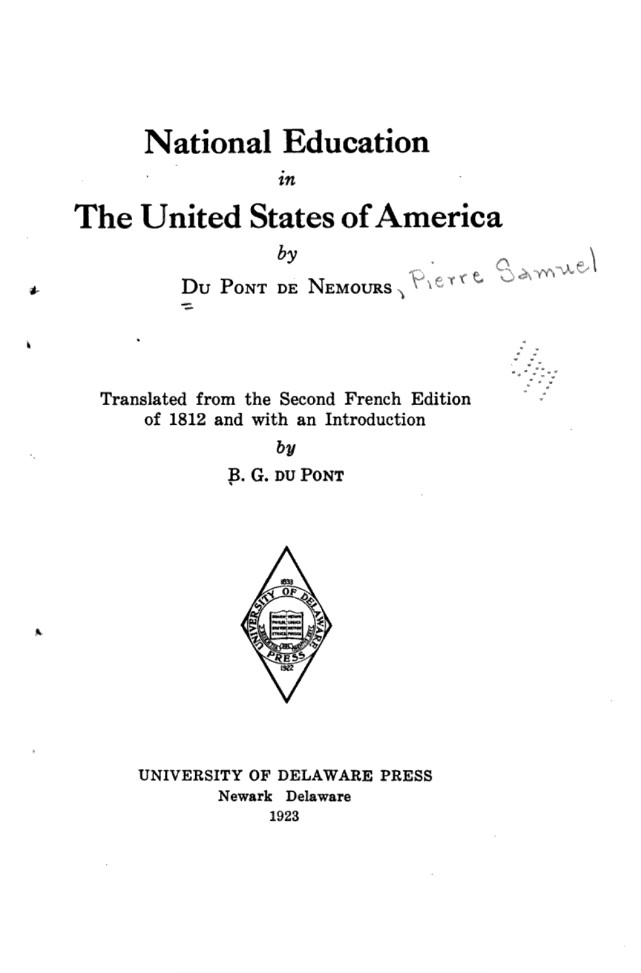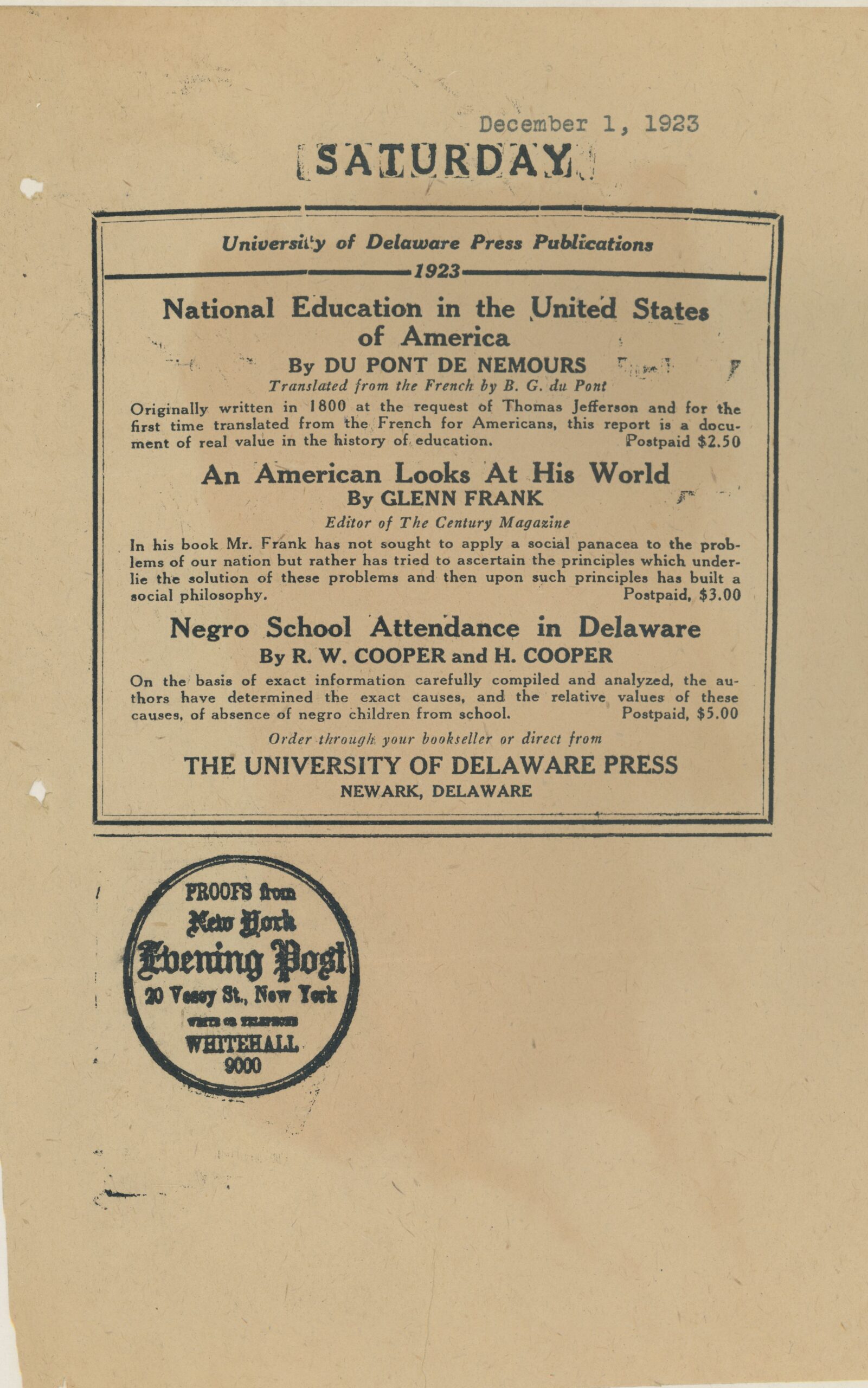Throughout the spring of 1922, President Hullihen met with Joseph Odell, president of the education-oriented philanthropic organization Service Citizens of Delaware, and Everett Johnson, owner of the local printer Press of Kells, to discuss establishing a University of Delaware Press with capital provided by the Service Citizens. On May 12, Hullihen, Odell, and Johnson, along with Pierre S. duPont and Judge Hugh Morris, met and approved of establishing the press as long as the consent of the university’s board of trustees was secured.
When he presented to the board a few weeks later, Hullihen explained to the trustees that, although the initial pipeline for the press largely consisted of Service Citizens books, there were other projects that were already lined up, including the second edition of University of Delaware English professor Wilbur Owen Sypherd’s The English Bible. While the press would not be solely dependent upon the Service Citizens for funding, neither would it place any financial obligation on the university. Instead, all such obligation would fall to the individuals forming the corporation that would operate under the University of Delaware Press name. The corporation would contract with various printers and publishers to ensure each University of Delaware Press book had a means of being printed. The board of trustees approved the establishment of the press.
The press was incorporated on July 13, 1922. Its principal office was to be at the University of Delaware and Hullihen was placed in charge of press operations. Hullihen, Odell, and Dr. Finley M.K. Foster, a University of Delaware faculty member, were the original stockholders in the press corporation, giving them the power to create and amend the press bylaws, which specified the nature and structure of press governance:
- A board of directors to manage the business and property of the press, including:
- A president, always expected to be the president of the University of Delaware, to oversee meetings of the stockholders and the board of directors and execute contracts
- A vice president
- A secretary-treasurer, who had to cosign with the president all checks issued by the press
- Ten additional members
- An executive committee consisted of the president, vice president, secretary-treasurer, and two other board members
- A reading committee
- A finance committee
- A press manager to steward publications from submission to publication, and to manage sales, marketing, and daily administrative tasks
The executive committee decided that different readers should be appointed to review each book, since each would be in a potentially unique subject area. Thus, to judge the quality of submitted manuscripts, the executive committee would appoint a different reading committee for each manuscript. Upon receiving readers’ approval, the executive committee would forward a book to the finance committee, and if they deemed a book financially feasible, it would go back to the executive committee for final approval.
The board of directors voted to make the Press of Kells the official printer of the University of Delaware Press, and it also served as the official distributor. Finley M.K. Foster was named press manager. In the spring of 1923, the press published its first book, a translation of Pierre duPont’s National Education in America.
By this time, the press had a robust pipeline of books for publication over the next few years. With all operations handled by a manager who was an active faculty member and a board of directors made up of faculty, administrators, and laypeople, there was simply not enough dedicated staff to support the production of more books. Thus, in early 1923, the executive committee already decided to pause acquiring new books. With Foster leaving the university in 1925, Johnson passing away in 1926, which paused the operation of the Press of Kells, and the Service Citizens’s original charter to subsidize the press expiring by 1927, the press did not have the infrastructure necessary to continue publishing. After publishing a translation of the Greek tragedy Jephthah in 1928, the press went dormant.





